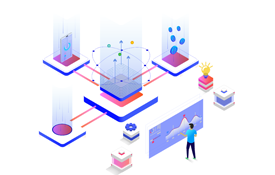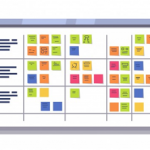Investing in Test Automation training will increase your team’s productivity.
The availability of reliable jobs in a competitive US market seems to be constantly embattled with competition and replacements of artificial intelligence (AI). In 2016, Foxconn replaced 60,000 employees with robots. However, the growth of Test Automation as an occupation has highlighted an intriguing option for newcomers and veterans in the tech industry.
Teaching Automation
The Software Testing market has shifted immensely in the past decade when considering the adoption of mobile devices and digital applications. While Agile development was utilized primarily in the past, Lean Software Development and Continuous Delivery are growing as a standard due to the reduced suite times and maintenance costs. While these attributes may seem attractive, pursuing this venture with an untrained staff will result in an ineffective and costly testing suite. When staff is prepared and confident in their task, it leads to more employee satisfaction and a collaborative spirit. This also relates to Emotional Intelligence, which allows staff to communicate their issues clearly. Training in the workplace can even improve retention of workers, which is one reason it is currently demanded in Software Testing. If you want to learn more about how these types of skills can be adapted, check out Michael Hackett’s article that explores team training.
Examples Where Automation is Growing
It is crucial to understand how this expansion of Test Automation will lead to an improved web service for clients and consumers alike. Newfound technology requires the creation of complex test suites, which can be overwhelming for smaller companies. If an outsourced testing company is not prepared for their given tasks, they risk re-creating tests following unsuccessful attempts. Failing Automation tests ultimately slow down the workflow of any organization looking for a flawless UI interface, which should be avoided at all costs.
Automotive Industry
The automotive industry is one sector where intricate testing techniques will call for an increased market of testers—we even focused an entire issue of the LogiGear Magazine on Testing the Software Car! Mobile applications are quickly becoming integrated with self-driving features, an offering that requires testing for the safety of humans on the road. Aside from self-driving, an automobile requires over a dozen independent tests for different parts—like an HVAC sensor. Not to mention, the average high-end, modern luxury car has over 100,000,000 lines of code—all of which will need testing!
Blockchain

The growing industry of end-to-end testing is comparable to the establishment of Blockchain in recent years. This secure method of storing information has sparked the creation of thousands of new jobs—all relating to a fairly new software implementation. Worldwide, Blockchain, and Bitcoin continue to grow in popularity and opportunity. The grassroots approach that was seen with Blockchain led to an organic community of creators—just like Software Testing. It is no secret that right now is a great time to enter the market of Test Automation.
Investing in the Future
Another benefit from an increased amount of experienced testers is the ability to reduce maintenance costs in an efficient manner. A recent client with LogiGear was able to reduce their regression cycles from 6 weeks to 24 hours through thorough testing, leading to a secure platform for their online store. Despite the increased budget of new Software Testers, the gained revenue from a functional site is more crucial and valuable. Other areas of technology are also seeing immense growth. As expected, IT jobs will grow by around 22% in the US alone by 2020. The expected revenue of a software company, such as Oracle, is over $40 billion USD in this year alone. The rate of growth for Software Testing jobs will increase at a similar rate, opening up more opportunities. While Software Testing is a growing trend in Silicon Valley, other parts of the country have started to adopt these practices based on the expansion.
While this industry may seem intimidating at times, many testers advise users with any level of experience to give Software Testing a try. LogiGear CTO, Hans Buwalda, mentioned to a DevOps publication that coding experience is not the most important prerequisite for testing.

Instead, the intuitive thought-process associated with “thinking outside the box” is what leads Software Testers to success. The constant shifts described in this article may leave potential testers with a feeling of ambiguity. While this is expected, proper management can offer collaborative techniques to ensure productivity. A team that can collaborate effectively may be difficult to assemble, but it will certainly ease testing procedures.
Summary
Based on current trends, the Test Automation market is certain to increase as new software companies are founded across the world daily. The rapid pace of software development constantly changes testing techniques, which can seem frustrating for new testers, but in the long-run opens a gate for fluid collaboration. Ultimately, a well-trained staff can set you apart from nearby competitors.



















